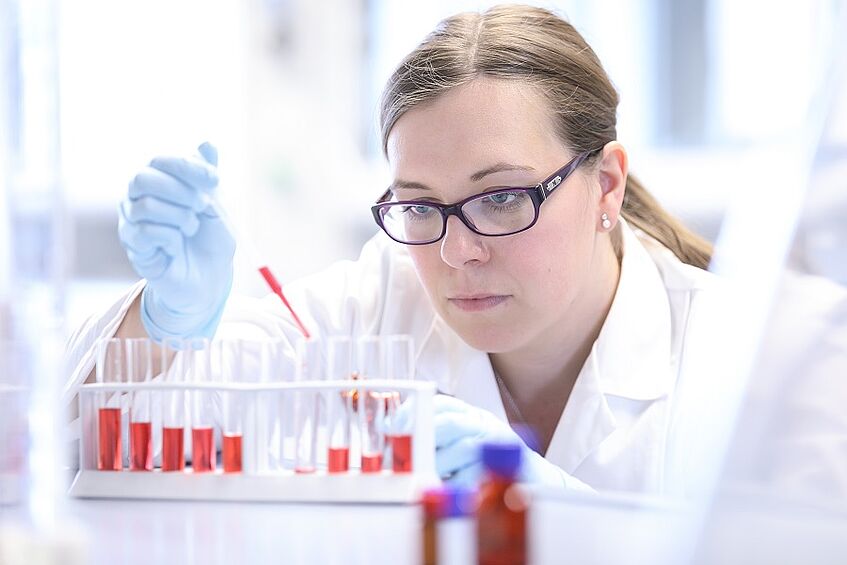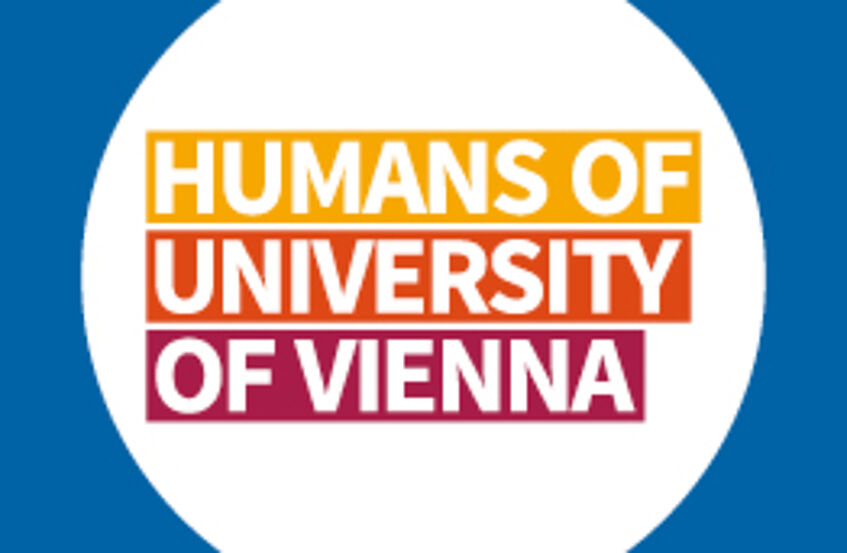The admission to this programme under the current conditions is only possible in summer semester 2025.
Molecular Biology (Master)

© Universität Wien / derknopfdruecker.com
The master’s programme in Molecular Biology aims at providing students with profound expertise in the field of molecular biology, in the framework of a curriculum with an internationally competitive orientation. Students learn to understand and analyse the chemical reactions in cells on a molecular level and in context. This way, they broaden their knowledge of the methods in molecular biology, and are then able to work on complex molecular and biomedical questions independently, using state-of-the-art large-scale equipment. They can select one of the following specialisations according to their interests: Biochemistry, Molecular Structural Biology, or Molecular Cell Biology. All of these fields represent central subject areas of molecular biology.
Master of Science
Degree Programme Code: 066 865
4 semesters / 120 ECTS credits
Language: English
NO entrance examination
Facts & Figures
- Students: n.a.
- Graduates in the last academic year: n.a.
- Number of semesters needed for graduation (median): n.a.
Data updated on: 03.12.2024
Admission Procedure
Information about the admission procedure
Information on Previous Studies:
In any case eligible degree programmes at the University of Vienna:
Study Programme
Having laid the basis in the central concepts of molecular and quantitative biology, the students of the Master program in Molecular Biology then gain expertise in one of the four alternative focal areas -- Molecular Machines, Cellular Architecture and Maintenance, RNA and Chromosome Biology and Stem Cell and Developmental Biology. Further information can be found at molekularebiologie.univie.ac.at/en/master-studies/.
Five Concepts
which you will deal with during your studies:
- Structure and function of cellular components
- Signal transduction
- Control of gene expression
- RNA- and chromosome biology
- Stems Cells and Developmental Biology
... and many more.
Overview of the programme structure & topics
Here you find the current offer of courses for this programme to gain better insight into the topics and structure. For more information please click on the respective level.
After Graduation
Graduates can pursue a career in the following occupational fields:
- academic career in private and public higher education and research institutions (in the fields of chemistry, biology, or medicine with a focus on biochemistry)
- research activities and career in a clinical setting (e.g. genetic medicine, medical and biological fields of basic research, clinical research, as well as therapy design)
- chemical and pharmaceutical laboratories and biotechnology (from start-ups to large-scale industry)
- public administration in the fields of chemistry, environment and medicine (e.g. risk assessment, genetic engineering and infection biology)
- product development (development of therapeutics and diagnostics), production and quality control in the chemical and pharmacological industry
- product management for chemical, biomedical and pharmaceutical companies
- high resolution molecular biological and chemical analysis, clinical and environmental diagnostics (industry, clinics, private companies)
- patent sector (national/international organisations and companies).
Graduates' Perspective on the Degree Programme
Graduates ...
- say that this degree programme receives the grade: 2.3 (good)
- rate the level of difficulty as: 3.5 (appropriate)
→ These results are based on feedback from 67 graduates.
*You can find further assessments of the degree programme from its graduates’ perspective in the graduate survey of the master's programme in Molecular Biology (in German).
Graduates ...
- find employment within 3 months after graduation on average.
- earn an average of € 3,157 (women) and € 3,222 (men) gross per month within three years after graduation.
- work full time at a percentage of 87% (women) and 82% (men) within three years after graduation.
*You can find further information on career entry and career paths in the tracking of graduates "MA Molecular Biology".

